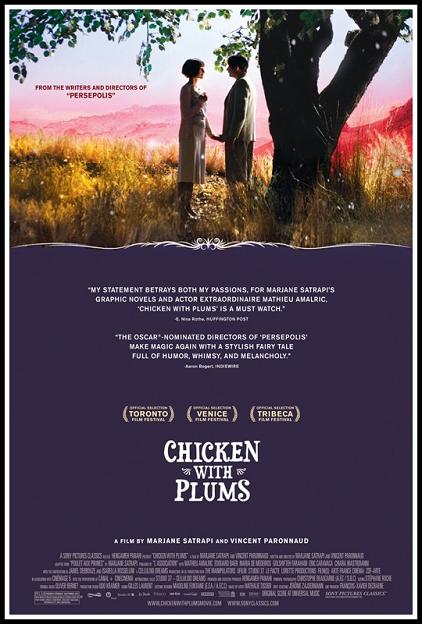

His true love is long lost, his marriage is passionless, and his most precious instrument has met its demise. It's still wickedly simple and good.Nasser Ali Khan (Mathieu Amalric, The Diving Bell and the Butterfly) is the most celebrated violin player in 1950s Tehran, but his heart is broken. Just throw together some couscous and a simple salad, and my friends, you have a meal-even if it's not the Chicken with Plums dish that Marjane Satrapi writes about. Otherwise, this is something you could make for dinner tonight. One small surprising note, and one you might consider: if you use red-fleshed plums, rather than say green, the chicken will turn a little pinkish-purple. She simply slowly sautees chicken fillets or pieces, then adds the plums until they are softened, and serves with a plum jam sauce. (I used boneless breasts and bone-in thighs and a nectarine-plum jam.) This dish is more traditionally made with a whole chicken seasoned with crushed garlic, salt and pepper and then flattened with a weight however, Roden simplifies this recipe into one you can easily make on a weeknight (before a round of board games as we did with a pair of friends). Georgia, which borders Turkey in the northeast, is famous for its plums and its sour plum sauce ( tkemali).

Instead, this particular offering of chicken with plums, according to Roden, is a Turkish speciality of Georgian origin.

Indeed, this dish from Roden's cookbook does not have the same spices or tomatoes, so Satrapi may scoff that I mention this dish in the same sentence as the one written about in her own book. Which is a shame because this particular dish is not the Iranian version, which I confess, I have scoured my current cookbooks and cannot find a recipe (a challenge: let me know if you know where to find Satrapi's version!).


 0 kommentar(er)
0 kommentar(er)
